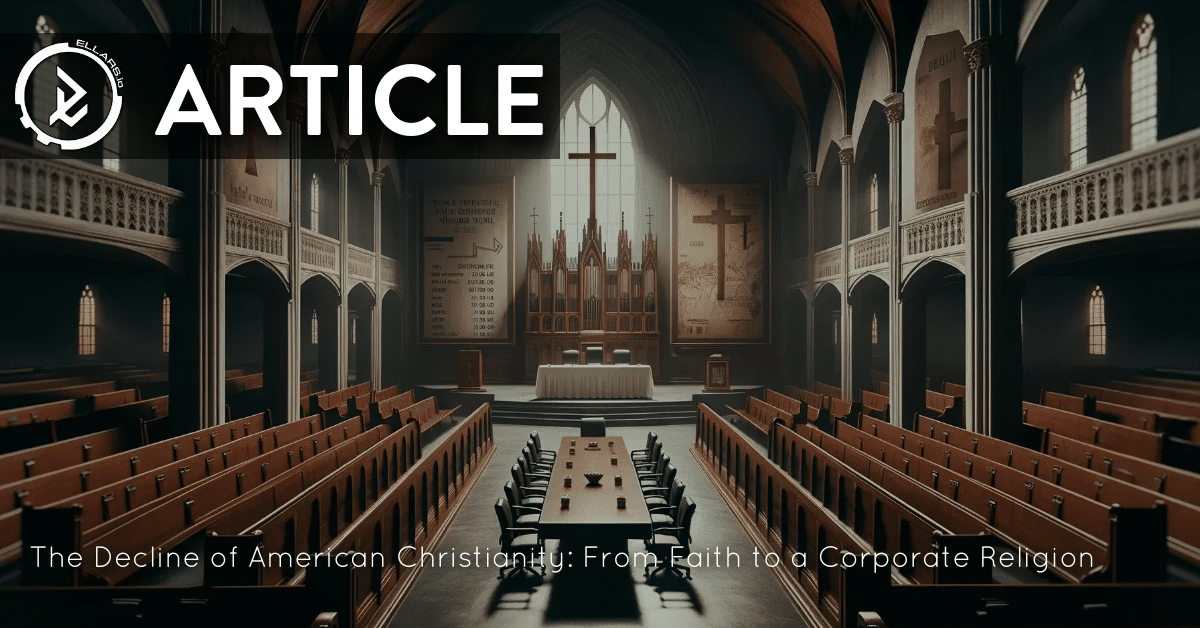As we navigate the complex landscape of spirituality in America, an obvious trend emerges—the decline of traditional organized religion. Once a cornerstone of community and individual identity, many churches now resemble corporate entities more than sanctuaries of faith. This article explores the historical context of religious freedom, the rise of political activity within churches, disillusionment with organized religion, and the search for authentic spirituality. By understanding these dynamics, we can gain insights into the changing relationship between spirituality and societal structures, and what it means for the future of faith in America.
Historical Context of Religious Freedom
The foundation of America is steeped in ideals of freedom, particularly the freedom from religious oppression. Early American settlers sought refuge from the religious intolerance that had defined their homelands in Europe. The Pilgrims and Puritans, well aware of the dangers of sectarian violence, envisioned a society that embraced diverse interpretations of faith.
Key figures like James Madison and Thomas Jefferson articulated the vision of religious freedom through legal frameworks such as the First Amendment. This establishment clause prohibits Congress from making laws respecting an establishment of religion, thereby ensuring the separation of church and state. At the heart of their commitment was the belief that genuine faith must arise from personal conviction rather than coercion and dogma.
However, as we progress through American history into the present day, these foundational ideals appear increasingly at odds with contemporary expressions of organized religion. The corporate nature of today’s churches, with structured hierarchies and profit motives, raises questions about whether modern organized religion still reflects its founding principles.
The Rise of Political Activity in Churches
In recent years, a noticeable shift has emerged: an intertwining of faith and political activism that has transformed many congregations into platforms for ideological agendas. Historically, churches served as sanctuaries for spiritual growth, promoting values of love and compassion. However, as political polarization has intensified, many churches have taken on partisan stances, often alienating congregants.
The rise of evangelical churches in the late 20th century exemplifies this transformation. Initially rooted in personal salvation and social justice principles, some megachurches began endorsing political candidates and promoting specific legislative agendas. This marked a shift from traditional pastoral roles to politically charged positions, leading to a growing divide among church members.
While individuals have the right to express political beliefs, this trend can detract from the primary mission of religious institutions: spiritual nurturing. When sermons pivot from messages of hope to calls for action against political issues, it creates an atmosphere steeped in fear rather than faith, resulting in dissatisfaction among congregants.
Disillusionment with Organized Religion
Organized religion is experiencing a decline. Surveys reveal that nearly 30% of Americans identify as nondenominational, signaling a movement away from traditional religious institutions. Mainline denominations such as Methodism and Episcopalianism have seen membership plummet by nearly 50% over the past few decades.
A striking statistic highlights this trend within The Church of Jesus Christ of Latter-day Saints (LDS): approximately 40% of returned Mormon missionaries leave the church shortly after completing their service. Former missionaries recount feeling an intense pressure to conform during their missions. Many find themselves disillusioned upon returning home, realizing they no longer recognize themselves among peers.
Personal testimonies reveal common themes: a search for authenticity and a dissatisfaction with the teachings they once accepted. As younger generations grow increasingly skeptical of traditional institutions, we witness a shift toward personalized spirituality, emphasizing individual exploration over dogmatic adherence.
The Search for Authentic Spirituality
More recently, a palpable shift has emerged in how individuals engage with spirituality. Disillusioned by the rigid structures of organized religion, many are forging their paths toward self-discovery and fulfillment. Central to this search is a growing desire for authentic connection—both with oneself and with something greater.
Practices such as mindfulness and meditation invite individuals to cultivate an inner life that feels authentic and resonant. Unlike organized religion’s prescriptive nature, mindfulness encourages presence without judgment. This approach fosters a sense of peace that many find lacking in conventional worship settings.
Moreover, technology plays a significant role in reshaping how people seek spirituality today. Online platforms facilitate connections among seekers, allowing for discussions about spirituality outside rigid religious structures. Many are forming communities based on mutual interests rather than prescribed faiths, nurturing authentic connections grounded in shared values.
The Correlation between Modern Religion and Corporatism
In recent decades, many modern churches have adopted practices akin to corporate entities, prioritizing financial motives over spiritual guidance. Megachurches, in particular, exemplify this trend, transforming the ideal of a sanctuary into a business model that focuses on growth and profit.
Consider the case of a megachurch that began with principles of outreach but quickly adopted a corporate structure. Sunday services became high-production events complete with elaborate stage setups rather than intimate gatherings focused on worship. This shift altered the relationship between congregants and their faith, creating an environment where financial contributions became more significant than community connections.
The implications extend beyond financial transactions; individuals may feel pressured to contribute not only monetarily but also socially, prioritizing loyalty to institutional goals over personal beliefs. This fosters disillusionment as congregants realize their contributions support extravagant facilities rather than genuine outreach.
Conclusion
The decline of American Christianity reflects broader societal trends marked by disillusionment with organized religion, the rise of political activity within churches, and an increasing search for authentic spirituality. As individuals grapple with the complexities of their faith, it becomes evident that traditional institutions must evolve or risk becoming relics of a bygone era.
By understanding these dynamics, we can pave the way for a more inclusive future where diverse expressions of spirituality flourish. As seekers embark on their journeys of self-discovery, we must create supportive communities that celebrate authenticity, empower growth, and foster meaningful connections. The quest for spiritual fulfillment will remain an essential aspect of the human experience, transcending external constraints and embracing the richness of individual paths.
FAQ Frequently Asked Questions
Q: Why is organized religion declining in America?
A: Several factors contribute to this decline, including disillusionment with traditional institutions, increasing political entanglement within churches, and a growing desire for personal spirituality over dogmatic adherence.
Q: What are some alternatives to organized religion?
A: Individuals are exploring alternatives such as mindfulness, meditation, and forming communities based on shared interests rather than prescribed faiths. This allows for authentic connections grounded in mutual values.
Q: How can churches adapt to the changing spiritual landscape?
A: Churches can embrace inclusivity, prioritize genuine community building, reduce the emphasis on corporate practices, and provide spaces for open dialogue where diverse perspectives are celebrated.

